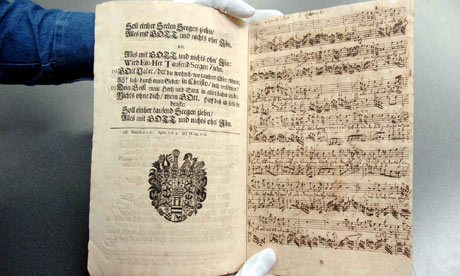
1. Music: A very short introduction by Nicholas Cook [OUP 1998]
I am not sure how the deft Prof Cook manages to squeeze so much intelligence, cultural reference and perspective into so short a book. It is the Tardis of musical analysis. No sooner have you started it than it seems to be drawing to its conclusion but in between page 1 and 160 you eyes and ears are opened. If you only read one book on western music (apart from mine!) this is it.
2. The Unanswered Question: Six Talks at Harvard by Leonard Bernstein [OUP 1976]
Bernstein is one of the 20th century’s most influential musical figures and his groundbreaking network television talks on music in the USA during the 60s are the inspiration for my own forays into TV musicology: no one would make them like that now, least of all in America – one man standing lecturing at a camera with an orchestra and piano behind him his only tools for an hour at a time in primetime. Gimmick-free musical analysis it was but boy, was he a fabulous communicator, with vigorous, often controversial views that he could back up with example and chutzpah. The programmes have long since disappeared but these transcriptions of his Harvard lectures, whilst aimed at music students rather than the general public, are the next best thing. Expensive, rare and gripping.
3. This is Your Brain on Music by Daniel Levitin [Atlantic Books 2007]
Levitin combines his parallel careers in music and science into this unputdownable examination of what actually happens to us when we experience music as listeners, performers or composers. The publication and popularity of this book represents the moment when the previously-held notion that music (singing, specifically) was a by-product of language, peddled for half-a-century by scientists and philologists with little or no knowledge of music, was well and truly disposed of. By the end of this book, you are 100% clear that it’s the other way around.
4. Roots of the Classical by Peter Van der Merwe [OUP 2004]
This book is not for the faint-hearted nor anyone who cannot read music, since it is through many examples that Van der Merwe often elucidates his brave and enlightening theories on classical music’s debt to non-classical forms and idioms. I am sure there are many hardcore classical enthusiasts who would be alarmed by some of his conclusions: his scholarship is doubly welcome for that and it forms a brain-expanding companion to his earlier …
5. Origins of the Popular Style by Peter Van der Merwe [OUP 1989]
… where he shows hundreds if not thousands of examples of the way 20th-century popular music forms owe their origins to earlier classical and European folk forms. Another, different group of self-appointed music “experts” will be equally enraged by this book, people who spit out the words “relativism” as if they are going to choke to death at the very thought. They should therefore be compelled to read this dazzling account of the origin of musical species.
6. The Triumph of Music: Composers, Musicians and their Audiences by Tim Blanning [Allen Lane 2008]
This won’t tell you about Handel’s aria form or Verdi’s orchestrational technique but it will provide you with the best-ever context for the way both those composers’ music was received in their own time. It is also a reminder that our current slavery to fashion and the passing fad of stardom is nothing new: our 17th, 18th and 19th-century ancestors were behaving with all the same weaknesses, snobberies and infatuations.
7. Revolution in the Head: The Beatles’ Records and the Sixties by Ian Macdonald [Pimlico 1995]
The only book you need to read on the Beatles and their musical impact. I say musical, because Macdonald, like me, is not at all interested in their roles as fashion icons, leaders of change in teenage morals, social and gender politics, the Swinging Sixties blah blah blah. They were important musicians. You don’t need to know anything else.
8. Everything You Ever Wanted to Know About Classical Music … but were afraid to ask by Darren Henley and Sam Jackson [Elliott Thompson 2012]
This is for the non-trained music lover. It is a good and easy read with a wealth of juicy detail. Nigella for classical music.
9. The Muse and the Fashion: being a defence of the foundations of the art of music by Nikolai Medtner, trans Alfred J Swan[Haverford College Bookstore 1951]
This is out of print but can be found in the odd library and there are some scans online. The search is well worth the effort, since Medtner (a wonderful yet underrated Russian composer contemporary of Rachmaninoff, who emigrated to the UK in the 30s and died in London in 1951) makes an extraordinarily lucid and courageous defence of the western musical system in the teeth of its most turbulent, unhappy period, like someone articulating the value of peace during a bitter civil war. Magnificent. Will someone reprint it, please?
10. The Rest is Noise by Alex Ross [4th Estate 2007]
It is a measure of how brilliant this book is that I recommend it unreservedly despite the fact Mr Ross is antagonistic to me and my music. It is simply the best book on the agony and ecstasy of 20th-century classical music. It is also a significant demonstration of how dominant American music has been in the past 100 years that the author directs his commentary, unshyly, to his domestic readership yet almost every reference in it is relevant and familiar to us in the Old World.
Howard Goodall is an award-winning composer of choral music, stage musicals, film and TV scores. He is the author of The Story of Music (Chatto), which you can buy at the Guardian bookshop. A series of six hour-long films to accompany the book is currently showing on BBC2 on Saturday nights.

Share it people